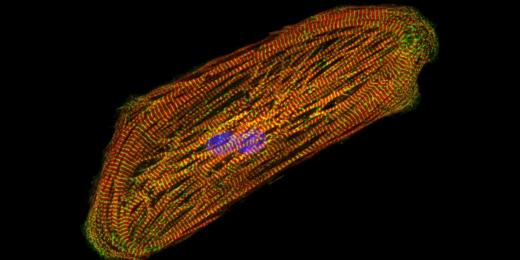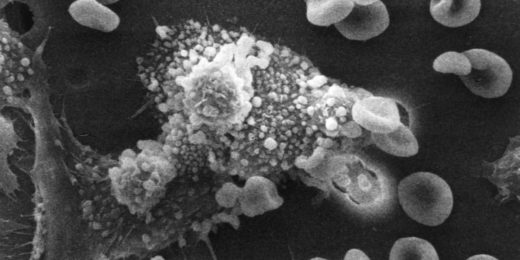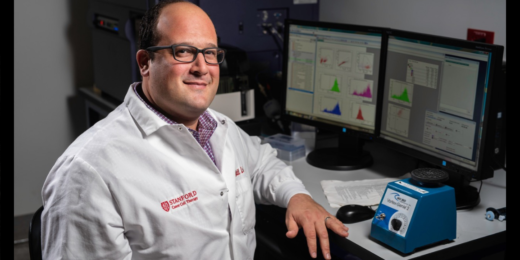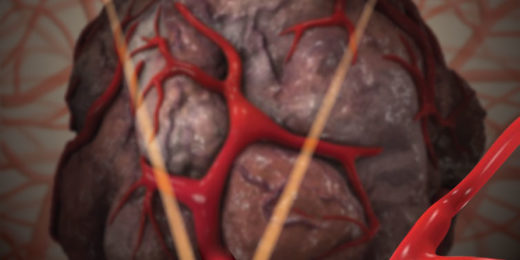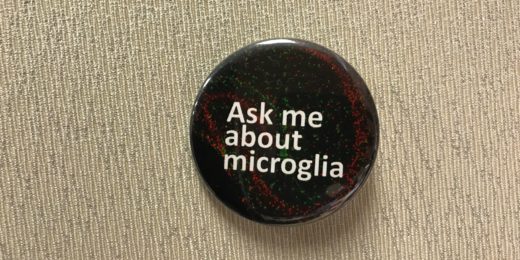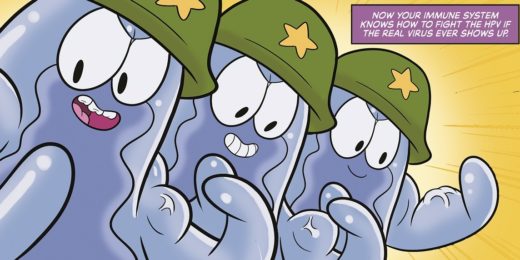A push to personalize medicine can backfire when it comes to screening for colorectal cancer, says a Stanford gastroenterologist.
Category: Cancer
Doctors share story of daughter’s treatment for leukemia
Editors note: The family has requested removing the video to protect their daughter's privacy. We apologize for the inconvenience.
Immune cells engineered to tattle on suspicious cells in the body
Scientists have modified immune cells, imbuing them with the ability to not only detect, but reveal, the presence of a tumor.
Existing drug found to dampen chemo side effects in breast cancer — in a dish
Stanford researchers make progress in predicting which patients will suffer heart problems from chemotherapy, and may have found a drug to mitigate them.
Breast cancer recurrence, location predicted by molecular data
Molecular data identifies breast cancer subgroups likely to recur decades after successful treatment, predicts probable timing and location of metastases.
Bright future forecast for 3-year-old cancer survivor
Cru Silva was diagnosed with a type of eye cancer when he was 18 months old. After nearly a year of treatments, he's healthy and back home in Hawaii.
Anti-CD47 antibody trial in advanced cancers shows treatment appears safe, well-tolerated
An antibody against the "don't eat me" signal on cancer cells appears safe and well-tolerated by patients with advanced cancers. A phase 2 trial is planned.
“We should study that!”: How a nurse-scientist found her passion
Nurse-scientist Kimberly Pyke-Grimm draws on her clinical experience when studying how teens, young adults and families make decisions about cancer care.
Positive mindset helps with an allergy therapy’s side effects, says Stanford study
A small change in how patients learn to think about side effects of a food allergy treatment greatly reduces their anxiety, Stanford researchers found.
Immunotherapy target identified for pediatric cancers
Stanford scientists have moved a big step closer toward using engineered immune cells to treat many forms of pediatric cancer.
On courage and cancer
In this excerpt originally in Months to Years, Michelle Mindlin reflects on how she found courage as she faced cancer repeatedly.
Gold “nanoprisms” open new window into vessels and single cells
Scientists modify a well-established imaging technique using gold nanoparticles to see swaths of tissue at a single-cell level.
May I have this dance? Nuclear chaperones guide transcription factors to DNA
Proteins that guide transcription factors from the nuclear membrane to the DNA cause drug-resistant skin cancers and are new targets for drug development.
New hope for treating “chemo brain,” with a side of the joy of science
A decades-long scientific collaboration points the way to therapies for "chemo brain," the cognitive impairment that follows cancer treatment.
Comic book aimed at cutting cervical cancer rates hits the stands
In a drive to reduce high cervical-cancer rates in Nigeria, a nonprofit organization co-founded by Stanford oncology researcher Ami Bhatt, MD, PhD, has enlisted the imaginative assistance of an educational comic book.
Blasting radiation therapy into the future: New systems may improve cancer treatment
Stanford and SLAC researchers are developing new technology to dramatically reduce the duration of radiation therapy and its treatment side effects.





